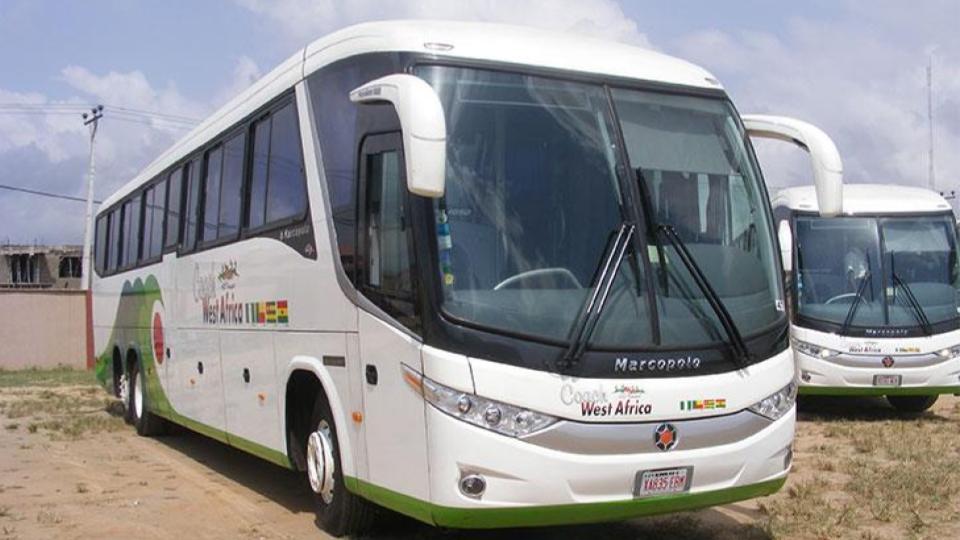- ABC Transport’s cargo and haulage divisions recorded substantial growth, with cargo revenue increasing 65% year-over-year to ₦4.02 billion and haulage revenue rising 133% to ₦2.83 billion.
- Despite strong logistics expansion, passenger transport continues to struggle with higher costs and stiff competition, contributing to an overall increase in operating expenses.
- The company’s direct costs surged 81% to ₦9.97 billion, raising concerns about profitability despite a 76% revenue jump to ₦12.61 billion.
- Finance costs jumped 30% to ₦532.32 million, highlighting ABC Transport’s reliance on debt to fund operations and expansion.
- Investors are optimistic about logistics growth but wary of whether it can fully compensate for declining margins in the passenger business and increasing debt obligations.
ABC Transport has long been a key player in Nigeria’s transport and logistics industry, but shifting market dynamics are forcing the company to lean more heavily on cargo and haulage services. While these segments have driven substantial revenue growth, the question remains whether this expansion is enough to counteract declining passenger transport performance. In the fourth quarter of 2024, the company reported ₦12.61 billion in total revenue, a 76% increase from the previous year. However, rising costs continue to weigh on profitability, raising concerns about whether logistics alone can sustain future earnings.
The company’s cargo business is undoubtedly on the rise. Revenue from this segment surged to ₦4.02 billion, up from ₦2.43 billion in Q4 2023, representing an impressive 65% growth. Similarly, the haulage division recorded ₦2.83 billion in revenue, a 133% increase from the previous year. This reflects a growing demand for logistics services, with businesses increasingly relying on efficient supply chain solutions. Despite this, ABC Transport’s passenger transport business—once a core revenue driver—continues to face headwinds due to rising operational expenses and growing competition from emerging transport alternatives.
Operating costs remain a major challenge. The company’s direct costs ballooned by 81%, climbing from ₦5.51 billion in Q4 2023 to ₦9.97 billion in the latest quarter. This cost escalation outpaced revenue growth, placing immense pressure on profit margins. Administrative expenses also increased 30% to ₦1.65 billion, further eroding efficiency. While ABC Transport reported a gross profit of ₦2.63 billion, up from ₦1.63 billion a year earlier, investors are questioning whether the company can maintain sustainable margins given the rising cost structure.
Beyond operating costs, finance costs surged 30% to ₦532.32 million, underscoring the company’s heavy reliance on debt financing. With total liabilities increasing to ₦6.21 billion, up from ₦4.82 billion, concerns about leverage and future debt servicing have intensified. The company’s debt-to-equity ratio now stands at 2.91, signaling significant financial strain. While the logistics expansion has helped boost revenue, the growing debt burden may limit ABC Transport’s ability to reinvest in its business without further leveraging its balance sheet.
Despite these financial pressures, ABC Transport managed to return to profitability. The company posted a net profit of ₦592.53 million in Q4 2024, a sharp recovery from the ₦379.03 million loss recorded in Q4 2023. However, the sustainability of this turnaround remains uncertain, given that much of the profit growth was fueled by increased revenue rather than cost efficiencies. If operating costs continue to rise, the company could struggle to maintain positive earnings momentum.
Investor sentiment remains mixed. On one hand, the company’s strong logistics revenue growth is an encouraging sign that ABC Transport is successfully positioning itself within a high-growth market. On the other hand, its passenger transport struggles and rising debt load raise red flags about future profitability. The transport business is particularly vulnerable to external economic pressures, including inflation, foreign exchange fluctuations, and fuel price volatility, all of which could further impact operational costs.
The company’s cash flow dynamics present additional risks. ABC Transport reported net cash inflow from operating activities of ₦1.82 billion, up from ₦1.35 billion in the prior year. However, capital expenditures also increased, with ₦2.83 billion spent on property, plant, and equipment, more than doubling the previous year’s ₦1.08 billion. This raises questions about whether the company’s aggressive investment in infrastructure is sustainable given its current financial position. The resulting negative net cash flow of ₦980 million suggests that additional financing may be needed, potentially leading to more debt accumulation.
At ₦1.23 per share, ABC Transport’s stock remains relatively undervalued compared to industry peers, reflecting investor caution. While the cargo and haulage segments present strong growth potential, the key challenge will be managing costs effectively. Investors are watching closely to see whether the company can implement meaningful cost-control measures to offset rising expenses and improve profitability in the passenger segment.
A critical factor in ABC Transport’s long-term trajectory will be its ability to diversify revenue streams while optimizing efficiency. Management has already begun implementing cost-cutting initiatives, but whether these efforts will be sufficient remains to be seen. The company is also exploring strategic partnerships and potential collaborations that could ease financial pressures while enhancing its logistics capabilities.
The macroeconomic landscape will also play a defining role. Nigeria’s inflation rate, currently above 20%, continues to drive up key operational expenses, including labor and fuel costs. Additionally, currency depreciation adds another layer of complexity, making it more expensive to acquire and maintain fleet assets. While the logistics sector is expected to experience continued growth, the broader economic climate could influence ABC Transport’s ability to convert this demand into sustained profitability.
For investors, the central question is whether ABC Transport’s cargo boom can sufficiently offset passenger transport losses. While logistics growth is encouraging, passenger transport remains a significant revenue stream, and ongoing losses in this segment could undermine overall financial performance. The company will need to strike a delicate balance between expansion and fiscal discipline to ensure long-term stability.
ABC Transport’s future hinges on its ability to rein in rising costs, maintain operational efficiency, and capitalize on logistics demand without overextending itself financially. The company has demonstrated resilience, but whether it can navigate these challenges successfully remains an open question. Investors are cautiously optimistic but remain keenly aware of the risks that lie ahead.
